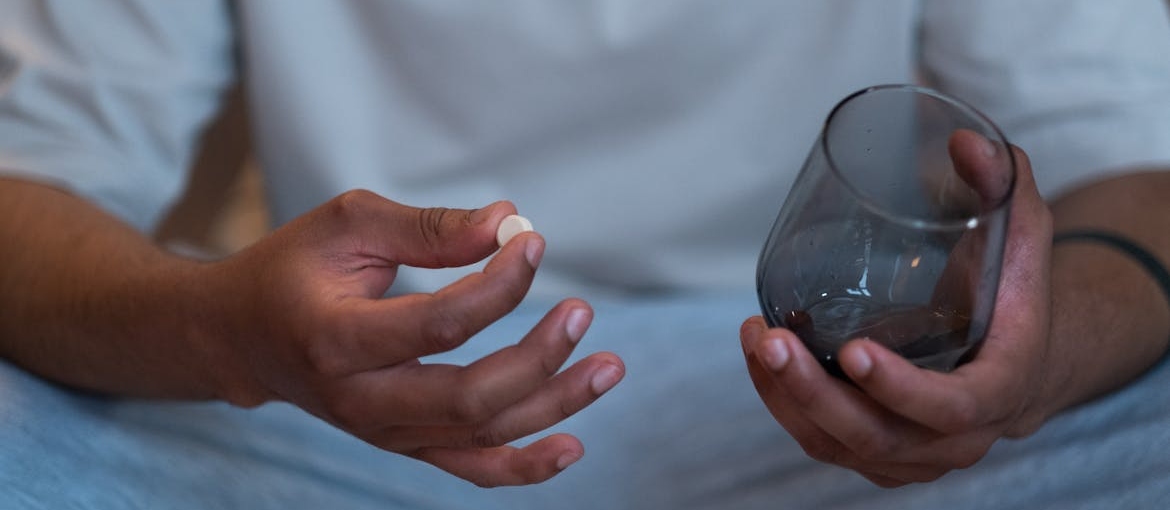Quitting Concerta isn’t easy. You might feel tired, low, or even confused about what’s happening to your body. Concerta withdrawal can hit harder than expected, especially if you’ve used it for a long time. You’re not alone if you’re wondering when you’ll start to feel normal again. This article breaks down what the withdrawal timeline looks like and what you can do to feel better. You’ll also learn what signs mean it’s time to get help. Some people need support from professionals, and that’s okay. If symptoms get worse or you feel stuck, rehab centers in West Virginia can guide you through recovery. You don’t have to figure it out all at once. Knowing what’s ahead can help you feel more in control. Let’s take it one step at a time.
What Is Concerta and How It Affects the Brain
Concerta is a stimulant used to treat ADHD. It changes how your brain handles dopamine, which affects focus and motivation. When taken regularly, your body adjusts to the drug. Over time, stopping can bring side effects. Common question people have is what does Concerta crash feel like? Like your brain suddenly shuts off—low energy, foggy mind, no drive. Some people feel overwhelmed or confused about these changes. That’s where support like REBT for addiction can help.

It teaches you how to challenge negative thoughts tied to drug use. Concerta withdrawal symptoms often begin when dopamine levels drop. You may feel tired, moody, or have trouble thinking clearly. This isn’t just a bad day—it’s your brain trying to reset. The longer you’ve used Concerta, the more likely these symptoms hit hard. Knowing how this medication works helps you prepare for what’s ahead. You can get better with the right help and support.
What Causes Concerta Withdrawal
Withdrawal happens when your body adjusts to life without the drug. If you’ve taken Concerta for a long time, your brain relies on it to feel alert and focused. When you stop, that balance disappears. You might feel exhausted, sad, or anxious for no reason. This is part of withdrawal from Concerta. It’s not your fault—it’s how the brain reacts.
If these feelings don’t improve, a stimulants rehab program might be a safer option. These programs offer structure and care while your brain recovers. Everyone’s body reacts differently, but the more you’ve used the drug, the more your system depends on it. You may not feel “normal” for a while, but symptoms fade with time and support. Recovery isn’t quick, but it’s possible, and you don’t have to do it alone.
Concerta Withdrawal Timeline: What to Expect Each Week
Each person reacts differently, but most people follow a similar pattern during withdrawal. Here’s what you might feel week by week:
- Days 1–3: Mood swings, fatigue, strong cravings, and headaches
- Days 4–7: Sleep problems, low focus, depression, and more mood changes
- Week 2: Emotions may feel flat, motivation stays low, some cravings still hit
- Week 3: Better sleep and mood, but focus issues and anxiety may return
- Week 4 and beyond: Energy slowly builds back up, fewer emotional crashes

How Long Concerta Withdrawal Lasts for Most People
One of the most common questions is, how long do withdrawal symptoms from Concerta last? The answer depends on several things: how long you’ve taken it, the dose, and your health. Most symptoms fade within a few weeks. Some people feel better after one week, but others need four or more. Mental symptoms—like sadness, anxiety, or trouble focusing—may linger longer.
If you’ve been struggling alone, consider reaching out to a trusted program. One option is an alcohol rehab center Morgantown WV residents often turn to for dual diagnosis care. They can help with both mood and substance use. The sooner you ask for help, the faster you’ll feel better. Your recovery is personal, but you don’t have to figure it out alone. Treatment helps the symptoms pass more safely and steadily.
Medical Detox vs. At-Home Withdrawal
You might want to quit Concerta on your own, but some symptoms hit harder than expected. Here’s how medical detox compares with staying at home:
- Medical detox offers safety: You’re watched closely, so risks are lower
- Professional support: You get care for sleep, mood, and mental health
- No access to the drug: Makes relapse less likely
- At-home withdrawal may feel isolating: No structure or support system
- Cravings at home can grow fast: Harder to avoid temptation
- You may not know what’s normal: That adds anxiety
- Staff monitor symptoms daily: Adjust care as needed

Coping With Symptoms During Concerta Withdrawal
Dealing with symptoms takes time, but small steps can help a lot. Drink water, eat regular meals, and keep a daily routine. Even basic things like going for a short walk or getting fresh air can help your mood. One effective approach is individual therapy for addiction. Talking to a trained counselor helps you understand what you’re feeling and why.
It can also teach you how to respond to stress without going back to old habits. If you’re wondering how long does it take to get Concerta out of your system, most of the drug leaves in a few days. But the emotional effects may stick around. Don’t ignore your needs during this time. Healing is slower when you try to do it all alone. Ask for help—it makes recovery easier.
When to Seek Professional Help for Concerta Withdrawal
If you’re going through Concerta withdrawal and things feel worse instead of better, it might be time to reach out. Some symptoms won’t fade on their own. Trouble sleeping, emotional ups and downs, or feeling unsafe should never be ignored. Medical support exists for a reason. You’re not weak for needing help—you’re smart for asking. These next three sections explain when help is needed, which treatment choices exist, and how to find a program that works for you.
Warning Signs You Need Medical Support
Your body can react in ways you don’t expect during Concerta withdrawal. Sometimes, what seems small grows into something serious. If you’ve been feeling overwhelmed, it might be more than withdrawal. It’s hard to tell alone. Medical support isn’t only for emergencies. It’s there to help you avoid them. Talk to someone if you’ve noticed the following:
- Extreme mood swings: Hard to manage or keep under control
- Sleep problems: Not sleeping at all for several nights
- Heart racing or chest pain: Especially with panic or stress
- Suicidal thoughts: Even if they pass quickly
- No energy to function: Can’t get out of bed or focus
- Ongoing confusion or memory trouble: Not improving after days
- Intense cravings: Making you feel unsafe or out of control

Treatment Options for Concerta Withdrawal
If symptoms get too heavy, you don’t have to tough it out. Professional treatment can make things easier. Withdrawal doesn’t have to wreck your routine or leave you struggling alone. Medical detox programs help you feel better faster and lower your risk of relapse. You’ll get support for sleep issues, mental health, and more. There are also longer programs if you need more time.
If you’re using insurance, try finding a drug rehab that accepts Tricare or other plans you qualify for. That can ease the cost and help you stay focused on recovery instead of money. Don’t wait until you’re in crisis. Getting help early often leads to better results. Support exists for a reason—use it. Your health matters more than pushing through withdrawal alone.
How to Choose the Right Program for You
Not all treatment programs feel the same, and that’s okay. Some people need more structure, while others want something shorter. The right fit helps you stay committed. First, think about your daily needs. Do you need to keep working? Do you feel safe at home? If not, a inpatient drug rehab in WV might be the safer choice. These programs give you full-time care and keep you away from triggers.
If your symptoms are mild, outpatient care may work too. Look at reviews, talk to staff, and ask about mental health support. ADHD or depression shouldn’t be ignored during withdrawal. A strong program treats both the addiction and what feeds it. Don’t rush your choice. Pick a place that helps you feel safe and seen. That can change everything.

Life After Concerta: Staying on Track After Withdrawal
Finishing withdrawal doesn’t mean you’re done healing. The hard part may be behind you, but recovery keeps going. Life without Concerta takes adjustment. You’ll need new ways to cope with stress, stay focused, and avoid relapse. It’s normal to hit bumps along the way. These next three sections cover how to rebuild your routine, handle ADHD symptoms, and get support that sticks—because recovery doesn’t end once withdrawal fades.
Long-Term Recovery Tips After Withdrawal Ends
Once your body clears the drug, your next steps shape what happens next. It’s easy to think the hard part is over—but habits still need time to change. You might still feel low energy, low mood, or struggle with focus. That’s common. Small changes in your routine can help more than you’d think. Get up at the same time each day. Eat real meals. Exercise, even for a few minutes.
Most people need a mix of structure and kindness to stay balanced. Don’t try to be perfect. Stick with what works, even if it’s not much. Be honest about what you need. Recovery isn’t about doing everything at once. It’s about doing one helpful thing each day. That’s how you stay steady after Concerta withdrawal is over.
Preventing Relapse and Managing ADHD Symptoms
After withdrawal, your ADHD symptoms might feel more intense. It can be harder to stay focused or manage stress. This can lead to cravings or the urge to use again. That’s why staying consistent matters. When you have ADHD and substance use disorder, it helps to work with someone trained in both. A therapist can teach you how to spot relapse signs early.
Medications that don’t lead to misuse may also help. Apps, planners, or routines can give structure without feeling overwhelming. Keep your space calm and your schedule simple. Even five minutes of planning makes a difference. Don’t push away support. Managing ADHD while staying off Concerta is possible—but it takes attention and patience. Stay honest with yourself. That’s how long-term recovery grows.

Support Groups and Follow-Up Care That Can Help
Even after withdrawal, staying connected matters. Feeling alone can make recovery harder. Support helps you stay strong when motivation fades. These options give you tools and people who understand:
- ADHD-specific support groups: Talk to people managing focus and recovery together
- 12-step meetings: Local or online groups for structure and peer support
- Outpatient therapy: Ongoing mental health help once detox ends
- Online recovery communities: Easy to access, especially in rural areas
- Case managers or recovery coaches: Help you stay organized and on track
- Family counseling: Improves support and lowers stress at home
- Alumni programs: Offered by some rehabs for ongoing connection after treatment
Moving Forward After Stopping Concerta
Going through Concerta withdrawal takes time, but you can get through it. You might feel off for a few days or even weeks, but those symptoms won’t last forever. Some days will feel harder than others. That’s normal. What matters most is that you don’t go through it alone. If you feel like it’s too much, reach out for help. Support makes a big difference. You don’t need to wait until things get worse. Talk to someone you trust or connect with a professional who understands what you’re facing. Recovery doesn’t happen overnight, but it starts with small steps. Give your body and mind the space to heal. You deserve that. If you’re reading this, you’re already moving in the right direction. Keep going. You’re stronger than the symptoms you’re feeling.
Frequently Asked Questions
What are the main signs of Concerta withdrawal?
Common signs include extreme fatigue, low mood, brain fog, sleep problems, irritability, and strong cravings, especially in the first week after stopping.
How long does Concerta withdrawal usually last?
Most physical symptoms improve within one to two weeks, while mood and focus issues may last several weeks depending on dose, duration of use, and overall health.
Why does Concerta withdrawal cause fatigue and low motivation?
Concerta affects dopamine levels in the brain. When the medication stops, dopamine drops suddenly, leading to low energy, reduced drive, and emotional flatness until balance returns.



